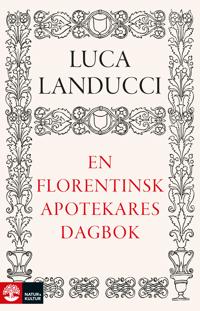This book is a collection of all... most of the the antique sources that talk about
Catilinarian conspiracy. If you don't know what this is I suggest looking it up it is quite a fascinating time. But basically Catiline was a roman living in the last decades of the roman republic. A time of turmoil and civil wars. He was from a wealthy family that had fallen on hard times and his early career was plagued by scandals. Among others things he was accused for murdering his wife and son and for corruption during his time as governor for the roman province in Africa. This might have been the reason why he twice failed to become elected as consul (the highest public office during the roman republic). Rather than try a third time he instead attempted a coup.
He gained support among the poor and as well as impoverished nobles like himself, gathered them into an army under his friend Manlius' command. He also planned arson and assassinations of various senators and the then consul Cicero. The plot was discovered, speeches was had in the senate. Catiline fled the city and joined the army while his supporters were imprisoned and executed. Catiline was killed in battle against the army Rome sent against them.
The book starts with a description of what happened who Catiline and the writers was. Most of the texts are historical accounts, chapters of books describing the history of Rome. A large part is also the speeches Cicero made in the senate and to the people.
My thoughts
While anthologies are normal I haven't actually seen one like this before. With all the historical sources on a subject combined. I would like to read more books like this about other historical events, though this one has the advantage of having a good amount of sources about it.
I would like to have heard from his supporter or Catiline himself. With Cicero being his enemy (understandably) and the rest being various historical texts seeking some kind of neutrality in the matter. They are still clearly on the side of the establishment and unsympathetic for the plight of the common man. Sallustius claims that Catiline surrounded himself and won the approval of people in debt. S attributes this debt to them being yo lazy to work and decadent living. I cant help drawing comparisons with the current boomer vs millenials and gen x conversation. This is not really a critique of the book, sources from so long ago are few, but it would still have been interesting.
A thing I noticed when reading all the accounts back to back was the differences between them. The accounts are all slightly varied. There are details in one that aren't in others, especially when it comes to peoples motivation. One example the description of Fulvia and Curius, they were the ones to inform Cicero of the assassination plot.
In Appianus account Cicero found out about the plot because one of the conspirators Curius bragged about it to his lover Fulvia who then told Cicero.
In Sallustius account they had also been lovers but the noble woman Fulvia had lost interest since he had money issues. He then brags about the money and power he will get. But also says that Curius threatened her. Here she just told people in general what she knew. Later she is described more like a go between for Cicero and Curius in a way that makes it sounds like Curious was helping Cicero.
Plutharcos also describes her as a noble woman and says she told Cicero of the murder plot. It does not mention Curius or how she found out about it.
Diodorus has the most details but doesn't mention either Fulvia of Curius by name. In his account one of the conspirators is in love with a girl who doesn't care for him. Same a Salustius he brags about the power he will gain and also threatens her. She then pretends to be interested to get him to tell her more. She then met with Ciceros wife and told her about what she knew. This is the only version that mentions Ciceros wife having any part in this.
Cassius Dio just says Cicero found out about the plot but not how.
This is just one example most parts are like this the broad strokes are the same but the details are different. I didn't even notice this until I had read a couple or accounts and going back and looking for it I found others.
Just a comment but what is Cicero's deal with sex. I can understand that he would have an extremely negative opinion on the person who tried to murder him, but in the second speech he spend a lot of time calling him and his supporters perverts and whores.
If you have read it what did you think? Leave a comment. If you haven't read it you can check it out here Catiline. As far as I can tell this book only exists in Swedish so far but the original texts and translations of them are easy to find.
Cicero, Sallustius, Appianus, Plutarchos








